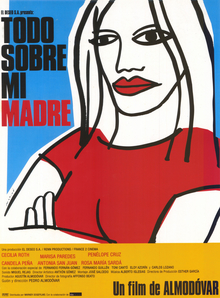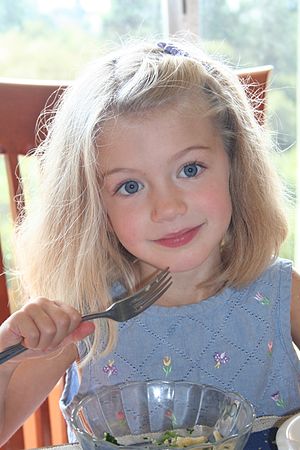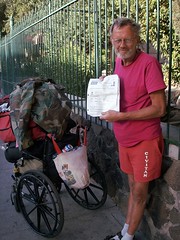Lately I've been wondering if there really is a "high road" when it comes to dealing with the health care system when you live with chronic illness, especially in light of all the problems that emerged during my recent Hepatitis C treatment at the UCLA Health System.
What is the "high road?"
n.
The American Heritage® Dictionary of the English Language, Fourth Edition copyright ©2000 by Houghton Mifflin Company. Updated in 2009. Published by Houghton Mifflin Company. All rights reserved.
1. a. The easiest or surest path or course: the high road to happiness. b. The most positive, diplomatic, or ethical course. 2. Chiefly British A main road; a highway.
In light of what the words "high road" mean, I can say with certainty that my Hep C treatment didn't follow this path! So naturally, my next question was "Well, why didn't it?" After much contemplation, I now think I understand "why not." Ironically, the answer is in the name of my medical care provider network of choice: system.
What Is a System?
At its core, a system is an organized, purposeful entity that is made up of many interconnected and interrelated pieces. In health care, some of these pieces include: doctors, nurses, allied health professionals, administrators, insurance companies, health care professional licensing boards, pharmaceutical companies, medical technologies, office space, information technologies, politicians and the government.
The people who are part of the health care system are bound by a mission and specific set of beliefs, principles, goals and objectives, procedures, methods and routines. Within the system there is a unique culture with norms for social conduct, tiers of hierarchy and privilege, boundaries determining who is in and who is out of the system, standards for conflict resolution and mechanisms for how feedback is solicited, received and processed. People carry out specific activities, perform certain duties and solve particular problems that fit with the mission and goals of the health care system.
So Where Do We Fit in the System?
In the simplest of terms, we are community members who are sick or injured and enter the system as "patients" to receive medical care so we can be restored to health and return back to the community. To us, health care is a collection of services given to us in an effort to change our state of health.
Another way to look at this is that patients are inputs into, and healthy people outputs from, the health care system.
Which is where I think the problem arises for those of us with chronic illness. We are not simple inputs. We present with a persistent state of illness, with health problems the system can't cure and often has trouble diagnosing. At best, it can only manage our health; at worst, it throws its hands up in frustration and resignation because we just don't leave the health care system as a successful output. That's because the health care system:
- hasn't figure out an appropriate model of care for us that meets our unique needs
- hasn't expanded its definition of health to include concepts like quality of life and palliative care which is what we are seeking
So if health care is a system, and we patients are the inputs and outputs of that system, what might the high road in health care look like? Let's go back to the definition to try and answer this question.
The Easiest or Surest Course
Based on my experiences in the health care system, here is what I think the "easy and sure" health care high road looks like:
- patients accept that doctors and other health professionals in the system are the experts
- patients present with medical conditions the doctor can easily identify with diagnostic tests
- those medical problems can be treated and cured with existing medications or procedures
- patients are compliant with medical treatments and instructions
- patients have medical insurance and/or cash on hand to pay medical bills
- patients leave the health care system healthier than they entered it
I think we can all agree that we have, at some point, tried to follow this path. In fact, when I first became chronically ill, I really, really wanted my doctor to find something wrong with me that could be diagnosed AND treated successfully. But alas, I don't have conditions that can treated and cured, only ones than can somewhat managed, an outcome me and many of my doctors aren't entirely happy with.
So no, I don't think an "easy and sure" path through health care exists for persons living with chronic illness.
The Most Positive, Diplomatic, or Ethical Course
O.K., let try again using the alternate definition. Despite my long 24 year history with the system, I'm not quite sure what health care thinks is "most positive, diplomatic, or ethical," so I am going to take the liberty of defining these variables myself:
Positive
- educating myself about my chronic health problems so I participate in my health care as an empowered, engaged, equipped and enabled patient
- accepting that my doctors may be limited in terms of what they can do for me
- giving balanced feedback about what is and isn't working for me in regards to the care I receive
Diplomatic
- using active listening skills and working to build a successful patient-provider relationship
- reminding my health care providers about all my chronic conditions
- letting my doctors know about my other health providers, what I see them for and what treatments they provide me
- asking for a second opinion or referrals when a doctor doesn't seem to be able to help me
Ethical
- rejecting substandard medical care and watching out for medical errors
- reporting problems and giving feedback to the health care system
- being a participant in my medical care and exercising my right to have the final say on all medical decisions
- asking for reasonable accommodations as afforded to me by the Americans with Disabilities Act
- affirming my right to appropriate medical care so I do not suffer needlessly
Wow, that feels much better! And I am happy to say I have definitely taken this high road and this is definitely the way I want to continue to approach my ongoing healthcare.
I also learned that someone who embraces this viewpoint actually has a name: they're called an e-patients. I found this article over at ClinicalPosters.com--How Empowered Physicians Can Embrace e-Patients--which discusses in-depth this new category of modern patient. You'll also be encouraged to know that the Society for Participatory Medicine thinks we e-patients can help heal the healthcare system.
That said, my personal experiences suggest that that the health care system as a whole isn't ready for communicating with e-patients just yet. Neither does respected physician blogger Kevin M.D.
But that isn't going to stop me from continuing to travel down this high road. Maintaining what remains of my precious health is so much more important to me than conforming and letting the health care system squish me like a square peg into a round hole.
That's because I am an optimist...and a fighter, despite the myriad challenges. I believe what Dr. Howard Richards says:
The phrase "fighting the system" alludes to the old folk saying "You can't fight the system." This saying expresses an intuitive sense that whoever wins, whoever loses, whatever group or class wins, whatever group or class loses, the system always wins. The system has remarkable endurance; it successfully defies attempts to change it, and it punishes those who try. Nevertheless, I am saying, you can fight the system if you know enough about (it).Now that we all know a little more about the nature of the health care system, we can all be encouraged to fight on, not just for healthcare transformation, but for a healthcare revolution that embraces new ways of thinking about health and medical care and replaces the existing norms with more principled and progressive thoughts, ideas and actions.
That's my opinion. What do you think?









![Reblog this post [with Zemanta]](http://img.zemanta.com/reblog_b.png?x-id=04bdaf44-9a75-474a-a188-a2c17969bab6)

![Reblog this post [with Zemanta]](http://img.zemanta.com/reblog_b.png?x-id=c7834f9f-fa0a-47f3-b46d-9873d5a6b98b)

![Reblog this post [with Zemanta]](http://img.zemanta.com/reblog_b.png?x-id=f1064b6c-5a7c-498d-af4e-15db62e6e6d1)

![Reblog this post [with Zemanta]](http://img.zemanta.com/reblog_b.png?x-id=81bafc62-1f8b-431b-b4c4-b8057d1d1390)